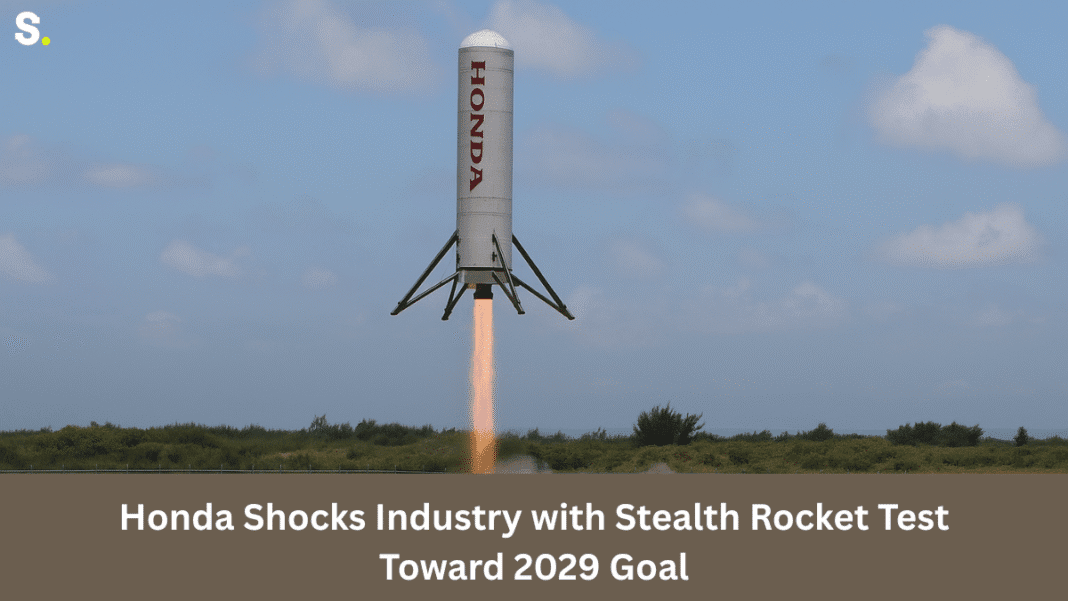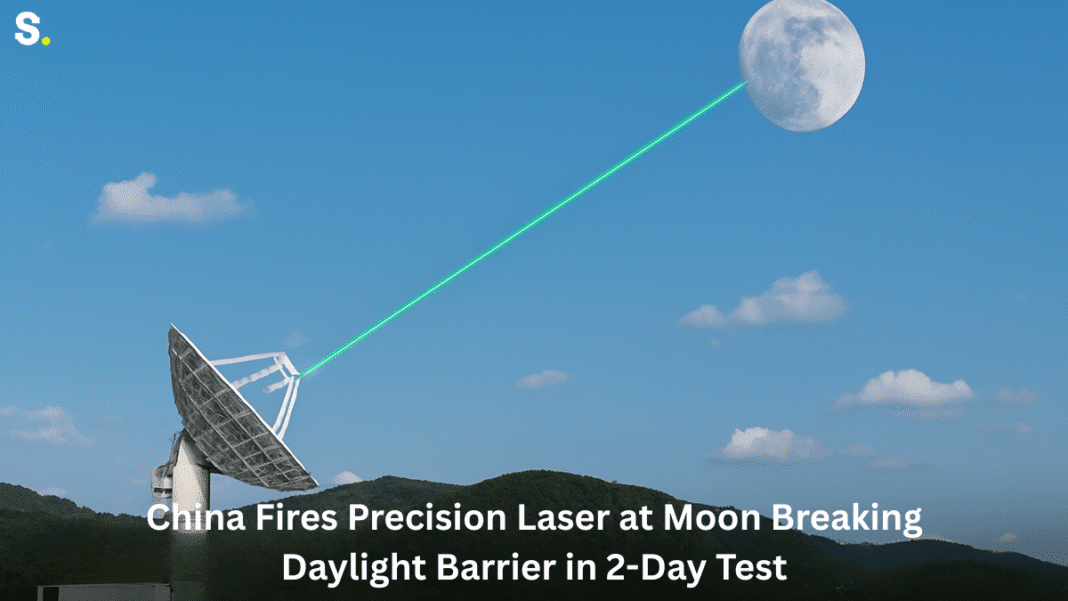In a move that surprised many, Honda, Japan’s second-largest car company, announced that it had successfully tested a small reusable rocket.
Honda’s Secret Rocket Surprise
This was not just any test — it was a major step toward Honda’s bigger goal of launching a spacecraft into suborbital space by 2029. The announcement came from Honda’s research division, Honda R&D, which quietly carried out the launch at a testing site in a place called Taiki in northern Japan.
The rocket used in the test is 6.3 meters tall, which is about the size of a two-story building. It was designed to go up and come back down safely so that it could be used again. During this trial, the rocket reached a height of 271 meters (about 889 feet), then landed smoothly back on the ground. Honda confirmed that this test was successful and showed that their technology is moving in the right direction.
This event is considered a big deal because Honda had not shared any details before the test took place. Although Honda had earlier said it was looking into space technologies, this was the first time it showed the world any real progress.
Suborbital Spaceflight and Why It Matters
The kind of flight Honda is aiming for is called a “suborbital” spaceflight. This means the rocket goes very high, nearly touching outer space, but it does not go into orbit around the Earth. Think of it like throwing a ball straight up into the air — it goes up, then comes back down, but doesn’t go all the way around the planet.
From Space to Trade Deals: Trump’s Missile Shield Pitch to Japan May Change Everything
Suborbital flights are important for many reasons. They can be used for scientific experiments, training, or even to launch satellites. Honda believes that if it can master this type of rocket technology, it might be able to offer services that connect to its other businesses. For example, the company could someday launch its own satellites to support things like car navigation, data communication, or even air mobility.
Although Honda has not decided yet whether it will sell this rocket or offer it to customers, it has clearly stated that it will continue to work on the basic science and engineering needed to reach its 2029 goal. Right now, the company is focused on learning how to build rockets that can be reused instead of thrown away after one use. This is important because reusable rockets can save a lot of money and reduce waste.
Japan’s Growing Role in Private Space Missions
Reusable rockets are not a new idea. In fact, they are one of the biggest developments in space travel over the past 10 years. Companies like SpaceX from the United States have already launched and landed rockets that can be used again. Other companies in America, China, and Europe are also working on their own reusable rocket systems.
Now Japan is joining the race. In addition to Honda’s quiet test, other Japanese companies are also making moves. For example, a company called Innovative Space Carrier recently announced plans to launch its own test rocket in the United States later this year. They will use an engine made in America.
Japan’s 2024 Mega Earthquake Sent Shockwaves into Space—Shocking New Satellite Data Revealed
Even Toyota, Japan’s largest carmaker, is stepping into the space business. Its research group has invested money into a rocket company based in the same town — Taiki — where Honda carried out its test. This company is focused on building rockets that can be mass-produced, which could make space travel cheaper and more common in the future.
The Japanese government is also showing strong support for the private space industry. It has created a large fund worth several billion dollars to help companies build rockets, satellites, and other space tools. The goal is to make Japan’s space industry twice as big — from its current size to 8 trillion yen, which is about $55.2 billion, by the early 2030s.
With so many efforts happening at once, Japan is clearly becoming more serious about space. Honda’s test is one of many signs that space technology is now something even carmakers are getting involved in. While there are still many steps to go, the successful test of this small rocket marks a meaningful start.




